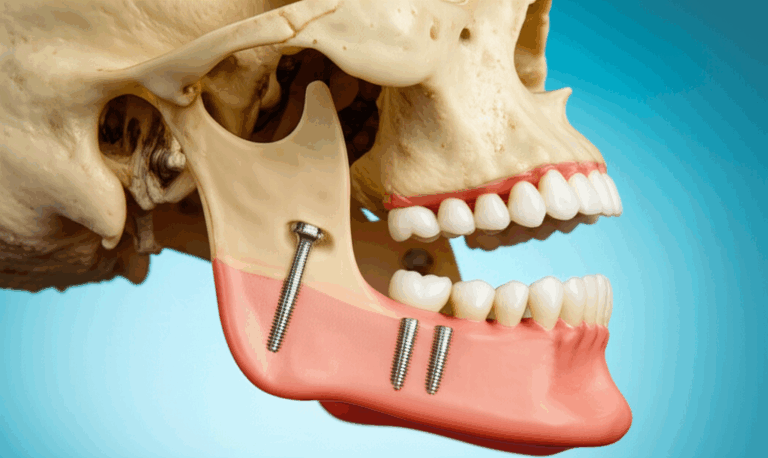
Can Dental Problems Cause Brain Fog?
It started slow. I would walk in a room and forget why I was there. I lose what I was saying in the middle of big meetings. Names of friends, places I go to many times—they all just disappear in a thick fog in my head. I thinked it was from stress, not enough sleep, or just get older. But this “brain fog” don’t go away, it was annoying, and, for real, a bit scary. It felt like my brain was very slow in a fast world. After months of look for an answer, I find a connection I never thinked of: my teeth. This article is my story, a look deep into how I learned my teeth health was the secret problem for my thinking troubles. If you feel mentally “off” and dont know why, I really ask you to read this. What I learn might give you the lost piece of your health puzzle.
Article Overview
- What is Brain Fog? My Own Fight with the “Fuzziness”
- The Surprising Cause: How Your Mouth and Brain is Connected
- The Main Dental Problems I Found Can Make Brain Fog
- How I Found Out: The Way I Finally Put It All Together
- The Fixes That Made My Head Clear: A Simple Guide to Get Better
- Stopping It from Coming Back: My New Must-Do Mouth Health Habits
- Last Words: Your Mouth is a Door to More Than Your Stomach
What is Brain Fog? My Own Fight with the "Fuzziness"
Before we go into the teeth part, I want to take time to explain what brain fog felt like for me. It is a word we use a lot, but the feeling is more than just forgetting things. For me, it was like a quiet, buzzing noise in my head all the time. The world seems not clear, my thoughts was slow, and easy brain jobs felt like walking in sticky mud.
Explaining the Signs: More Than Just Forgetting
My brain fog wasn’t just losing my memory. It was a whole group of thinking problems that made me feel bad about myself.
- Hard to Focus: I used to can sit and work on one thing for hours. Then, I could not even read one email without my mind going somewhere else. Reading a book, my big joy, become a hard job because I had to read the same part again and again.
- Brain Tiredness: This was the biggest problem. I feel my brain was so tired all the time, even with a good sleep. It was not my body was tired; it was a deep, tired feeling in my brain. Making choices feel like too much.
- Slow Thinking: I had trouble understanding things fast. In talks, I would feel one step late, not able to make my thoughts or find the right words. It felt like my brain’s speed was made slower.
- A Feeling of Being Not There: This was maybe the most scary part. I often feel not connected to what was around me, like I was watch my life on a fuzzy TV.
When I Knowed It Was Not Just “Being Tired”
For a long time, I made excuse. “I’m just working too much.” “I did not sleep good.” “I need more coffee.” The time that changed for me was when the fog start to hurt my work and my relationships. I missed a due date because I totally forget a project. I was not paying attention during a deep talk with my partner.
That is when I knowed this was something more. It wasn’t normal tired. It was a cloud that would not go away and was making my whole life dark. I start looking for answers, checking everything from food and vitamins to ways to handle stress. They help a little, but the fog always come back. I never thinked the real answer was right in my mouth.
The Surprising Cause: How Your Mouth and Brain is Connected
I always thinked my mouth was its own thing, away from my body. You go to dentist for teeth and a doctor for other stuff, right? What I learned is that this is a bad, old way to think. Your mouth is not Las Vegas; what happen there for sure does not stay there. It is connected in many ways to your whole body, specially your brain.
The Swelling Highway: From Your Gums to Your Brain
The biggest connection I learn about is swelling. Think you have gum disease (gingivitis or the worse one, periodontitis). Your gums are red, big, and bleed when you brush. That is your body fighting back against germs with swelling.
Now, think that swelling is a small fire. If you don’t stop it, it keeps burning slow, day after day. This long-time, low-level swelling don’t just stay in your gums. The swelling messages (called cytokines) and the germs can get in your blood.
When they are in the blood, they can go anywhere in your body, even your brain. When these swelling signals get to the brain, they can get past the blood-brain barrier—a shield that should keep bad stuff out. This can start neuroinflammation, or swelling of the brain. And what is a main sign of neuroinflammation? You got it: brain fog. My body was using so much energy to fight a war in my mouth that my brain was paying for it.
The Vagus Nerve: Your Body’s Big Highway
Another interesting connection is the vagus nerve. It is the longest brain nerve, like a big highway for information between the brain and many organs, like the gut. It also has parts that go through the jaw and neck.
When there is a problem in the mouth—like a deep infection or a bad jaw problem (TMJ)—it can make a “danger” signal. This signal can bother the vagus nerve, sending lots of stress messages right to the brain. When the vagus nerve is always bothered like this, it can mess up your nervous system, making you feel like you are always ready to “fight or run.” Living in this stress state can for sure lead to worry, being tired, and that foggy, not-focused feeling.
The Main Dental Problems I Found Can Make Brain Fog
Once I start to understand the connection, I looked at my own teeth history with new eyes. It turn out, I had a few problems in my mouth that was probably adding to my brain fog. Here are the main problems I found from my searching and talks with my dentist.
The Quiet Problem: Long-Time Gum Disease (Gingivitis and Periodontitis)
For years, I saw a little pink in the sink when I brushed my teeth. I thinked I was just brushing too hard. I totally ignore it. What I didn’t know was that this was the main sign of gingivitis, the first step of gum disease. I was letting germs get bad in my mouth.
This all-the-time, low-level infection was making my body’s defense system work too much, 24/7. It was the perfect way to get long-time swelling. My body was use up its power to fight the germs in my gums, making my brain feel tired and foggy. It’s like trying to use your computer with many programs you don’t need running in the back—everything just get slow.
Secret Infections: Abscesses and Root Canals
This, for me, was the big one. I had a back tooth that had a root canal years ago. Not long ago, it started to feel a little “not right”—not painful, just a dull, non-stop ache I could easy ignore. I wait to get it checked. Big mistake.
A 3D cone-beam CT (CBCT) scan at my dentist’s office showed a quiet, secret infection growing at the end of the root. My body was trying very hard to block the infection, making a little pocket of pus called an abscess. It wasn’t giving me sharp pain, but it was a huge source of swelling and germ poisons leaking into my body.
My dentist say that a bad root canal or a deep cavity that is not fixed can become a place of long-time infection. The tooth is basically dead, but the spot around it becomes a place for bad germs to grow. These infections can be not seen for years on a normal X-ray, all the time sending out swelling junk that makes your liver, your defense system, and your brain work too hard.
The Biting and Grinding: TMJ/TMD and Its Surprise Effects
I am a person who grinds my teeth (the real name is bruxism), specially when I’m stressed. I would wake up with a sore jaw and dull headaches, but I never connect it to my brain fog.
Temporomandibular joint disorder (TMJ or TMD) is not just about a clicking jaw. When your bite is wrong or you always clench, it makes a lot of tightness in the strong muscles of your jaw, face, and neck. This all-the-time muscle tightness is a type of swelling. It can also cause:
- Less Blood Flow: Tight neck and jaw muscles can squeeze a little the blood tubes going to your brain.
- Nerve Bothering: Like I said with the vagus nerve, a wrong jaw can bother big nerves, sending bad signals to the brain.
- Bad Sleep: Grinding your teeth at night messes up how you sleep, even if you don’t wake up all the way. You never get to the deep, good parts of sleep where your brain cleans itself. Waking up with a foggy brain is a big sign.
Heavy Metal Question: The Story of My Old Mercury Fillings
Like many peoples my age, I had a few of those old silver amalgam fillings. I never thinked about them until I start looking into this. I learned that these fillings are about 50% mercury.
Even though many dental groups say they are safe, more and more proof shows they can let out small bits of mercury gas, specially when you chew, drink hot things, or grind your teeth. Mercury is a strong brain poison. Even at very low amounts for a long time, it can mess with thinking, leading to memory problems, being tired, and—you got it—brain fog.
The idea that I might have a poison heavy metal slowly leaking in my body 24/7 was very worrying. It was another piece of the puzzle that just seem to fit.
When Breathing Stop: Sleep Apnea and Its Teeth Connection
This was a surprise for me. During a normal check, my dentist asked, “Does your partner ever say you snore or stop breathing at night?” I was shocked. My dentist was the first person to say I might have obstructive sleep apnea (OSA). He saw signs like my teeth were very worn down from grinding and I had a small air tube.
OSA is a problem where your air tube closes up when you sleep, making you stop breathing many times for a short time. Every time this happens, the oxygen in your blood drops very low. Your brain, needing oxygen, panics and wakes you up for a second to start breathing again. This can happen hundreds of times a night and you dont even know it.
The result? You never get good sleep, and your brain get many times with not enough oxygen. Waking up feeling very tired and with a foggy brain is the main symptom of sleep apnea. The connection to teeth doctor is that the shape of your jaw, tongue, and air tube—things your dentist sees all the time—are big reasons for OSA.
How I Found Out: The Way I Finally Put It All Together
Knowing all this stuff is one thing; using it for your own life is other thing. It took doing something and some detective work to finally find the cause of my brain fog.
Keeping a Symptom Diary: The “A-ha” Moment
This was the most helpful thing I did. I started a simple diary on my phone. I graded my brain fog from 1 to 10 each day. I also wrote down my sleep, what I eat, my stress, and—very important—any teeth symptoms. I wrote when my jaw was sore, if my gums bleed, or if that one back tooth was hurting.
After a few weeks, I saw something. On days when my jaw was very tight or after a bad sleep, my brain fog was an 8 or 9 out of 10. The connection was right there in writing. It was the real proof I need to stop guessing and start doing.
Finding the Right Doctor: Why a Good Dentist is a Health Detective
I knowed my old “drill and fill” dentist was not going to work. I needed someone who understanded the mouth-body link—the connection between the mouth and the rest of the body. I looked for a dentist who did “biological” or “holistic” dentistry.
A great dentist don’t just look at your teeth. They ask about your sleep, your headaches, your energy. They act like a health detective, using your mouth health as a clue to your all-over health. This is the kind of dental care everyone should have.
The Tools That Showed the Truth
My new dentist used tools that gave us a much better picture of what was happening. The thing that changed everything was the 3D Cone-Beam CT (CBCT) scan. Not like a flat, 2D X-ray, this gave us a 3D picture of my teeth, jaw, and sinuses. It was on this scan that we saw clear the long-time, low-level infection hiding at the root of my old root canal tooth. We could see the swelling that a normal X-ray did not see at all.
The Fixes That Made My Head Clear: A Simple Guide to Get Better
Finding the problems was half the fight. The next step was a full plan to fix them. It was not a fast fix, but with every step, I felt the fog start to go away.
Step 1: Saying Yes to Full Dental Care
First, I had to get the simple things right. I say yes to a deep cleaning (called scaling and root planing) to fix my gum disease. This took out the hard plaque from under my gums, finally giving my gums a chance to get better. It put out that slow burning fire of swelling. I also say yes to perfect daily dental care at home.
Step 2: Fixing the Real Problem (Really!)
The biggest step was to fix the sick back tooth. After we talk about what to do, we decided the best thing was to pull the tooth and clean out all the sick part. It was a big choice, but taking out that all-the-time source of infection was the most important thing.
Later, we put in a dental implant and a crown. My dentist showed me how new tools have totally changed this. The crown was made with amazing exactness at a digital dental lab, making sure it fit perfect and would not let germs hide. He say they use the best materials, sometimes getting from a special emax dental lab known for making strong and very real-looking fake teeth. The detail was amazing and made me feel good about the fix.
Step 3: Helping My Body to Heal
Fixing the teeth problems was important, but I also had to help my body get better. This was:
- A Diet to Stop Swelling: I eat mostly whole foods, lots of vegetables, good fats, and good proteins, and I stop eating sugar and processed foods that make swelling.
- Special Vitamins: With help from my doctor, I added vitamins like Vitamin D, Omega-3s, and magnesium to help my defense system and brain health. (Always talk to a doctor before you start vitamins!)
- Handling Stress: I got serious about my stress to grind my teeth less. I got a special night guard from my dentist and started to do quiet thinking time every day.
Slow but sure, like the sun coming through a morning fog, my mind started to get clear. The buzzing sound went away. My thoughts was sharper. The feeling of being here and paying attention came back. It was like a miracle.
Stopping It from Coming Back: My New Must-Do Mouth Health Habits
Going through this has completely changed how I see my health. I will never think my mouth cleaning is not important again. Here are the habits I started doing to keep the fog from coming back.
My Better Daily Habit
My habit is no longer just a fast brush. It is a must-do health thing.
- I brush for a full two minutes, two times a day, with a soft electric toothbrush.
- I floss every single night. No excuse. I also use a water flosser to get my gums extra clean.
- I use a tongue scraper every morning to take off germs that can make bad breath and swelling.
The Importance of Listening to Your Body
I don’t ignore small signs anymore. A little blood in the sink, a dull pain in a tooth, a sore jaw in the morning—these are all signals from my body that something is wrong. I take these signs serious and call my dentist.
Getting the Right teeth information for Health
I have become a part of my own health team. I ask my dentist questions. I read and learn about new things in dental health. I look for good teeth information so I can make smart choices. Doing things first, instead of waiting for a problem, is the key to be healthy for a long time.
Last Words: Your Mouth is a Door to More Than Your Stomach
My road from a foggy life to a clear mind has teach me one very important lesson: the mouth is the door to the whole body. The health of your teeth and gums has a direct and strong effect on the health of your brain.
If you have a problem with brain fog, being tired, or other long-time symptoms you cant explain, I really ask you to think about your teeth health. Don’t ignore that “small” toothache or those bleeding gums. Look for a dentist who understand the big picture. It might feel like it’s not the answer, but for me, looking inside my mouth was the key to getting my mind, and my life, back.








